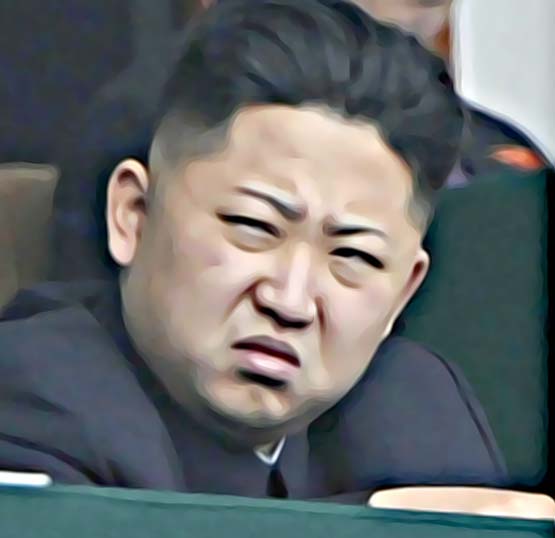
As yet another crisis looms in Northeast Asia, don't bet against North Korea.
In international affairs, as in life, clarity of purpose can be a huge advantage. And of all the parties to this seemingly endless struggle, only the regime in Pyongyang has it.
Kim Jong Un is heir to a family dynasty whose organizing principle - hold on to power, at all costs, and by any means necessary - has been constant ever since his grandfather, the "Great Leader" Kim Il Sung, founded it nearly seven decades ago.
To be sure, the Democratic People's Republic of Korea has, or had, an ideology, Marxism-Leninism, modified per the great leader's doctrine, "juche." It declares broad objectives, such as the reunification of North and South Korea on the former's terms.
Any and all such concerns can and will be subordinated to the prime directive, however: regime survival. Out of power, Kim, his family and his inner circle would have a bleak future, if any. This pudgy tyrant manages to be both odious and ridiculous; but the ever-present prospect of a hanging concentrates his mind.
By contrast, the United States has multiple and, indeed, conflicting interests. It wants to eliminate the threat of North Korean nuclear weapons and missile technology, obviously. Washington would like to see human rights and democracy prevail. But it is not willing to achieve these goals at the risk of war, whose most likely outcome would be Pyrrhic victory, with the Kim dynasty overthrown but many thousands of Americans dead and wealthy, democratic South Korea in ruins.
This would be true no matter who was president, which is why U.S. policy under Democratic and Republican administrations has been characterized by a cycle of threats and negotiations, all essentially futile, since North Korea's nuclear weapons program first became an issue a quarter-century ago.
The United States might be able to chart a clearer course if its ally South Korea's goals were as plain and simple as those of its evil twin north of the 38th parallel. Yet South Korea's ambivalence may exceed Washington's: Seoul has no appetite for fratricidal war and even frets that peaceful regime change would saddle it with huge costs of reunification.
Not surprisingly, South Korean leaders periodically succumb to magical thinking about the prospects for diplomatic engagement toward their long-lost brethren, which they call a "sunshine policy." The new president in Seoul, Moon Jae-in, is the latest case in point.
For its part, Japan fears North Korea as much as the United States does, if not more, since it is already well within missile range. Tokyo, though, makes a problematic ally due to its history as a hated colonial power in Korea. Deep down, the Japanese aren't sure whether a united Korea, even a democratic, capitalist one, would be in their long-term interest, given the old rivalries.
Similar misgivings plague China, the deus ex machina of U.S. strategy, such as it is, under President Trump - though this is hardly a new hope, since Trump's predecessor, Barack Obama, also wished for China to apply enough pressure on Pyongyang to get it to abandon nukes.
Dream on. For all its evident exasperation with the impetuous new kid in Pyongyang, China has long-standing ties to the Kim dynasty going back to the Korean War, during which the People's Liberation Army shed a sea of blood on its client's behalf.
Such commitments are not easily abandoned, especially when such a break could ultimately lead to a new, united Korea, democratic and allied with the United States, right on China's border.
Korea's final neighbor, Russia, triggered this crisis, in the sense that the Soviet Union's collapse deprived Pyongyang of military and economic support, obliging first Kim Il Sung and then his son Kim Jong Il (Kim Jong Un's father), to improvise survival through nuclear blackmail.
However, the regime of Russian President Vladimir Putin has no interest in a definitive solution. As long as the conflict does not erupt in actual war, Moscow is happy to have it drain and distract the United States. This is why Moscow does business with South Korea but also has more recently been strengthening its economic ties to North Korea.
Undoubtedly, North Korea could miscalculate and push the United States past the point where there is no alternative to ending the standoff through force. That's always a risk, especially under the mercurial Trump.
If the past 25 years have taught three generations of Kims anything, though, it is that its potential adversaries are incurably divided, both internally and among themselves, and will therefore tolerate threats and blackmail - even actual occasional conventional military attacks on South Korea - rather than forge the collective effort it would take to end the game once and for all.


 Contact The Editor
Contact The Editor
 Articles By This Author
Articles By This Author